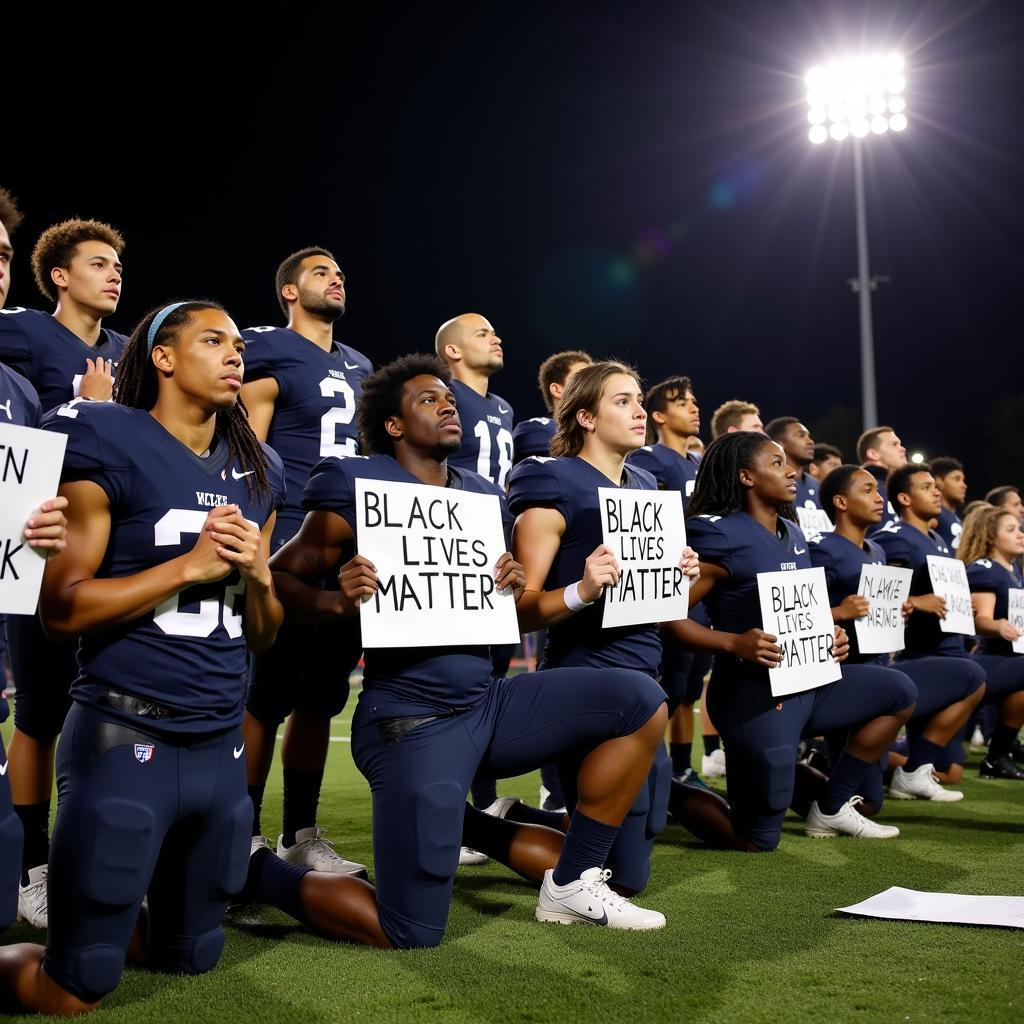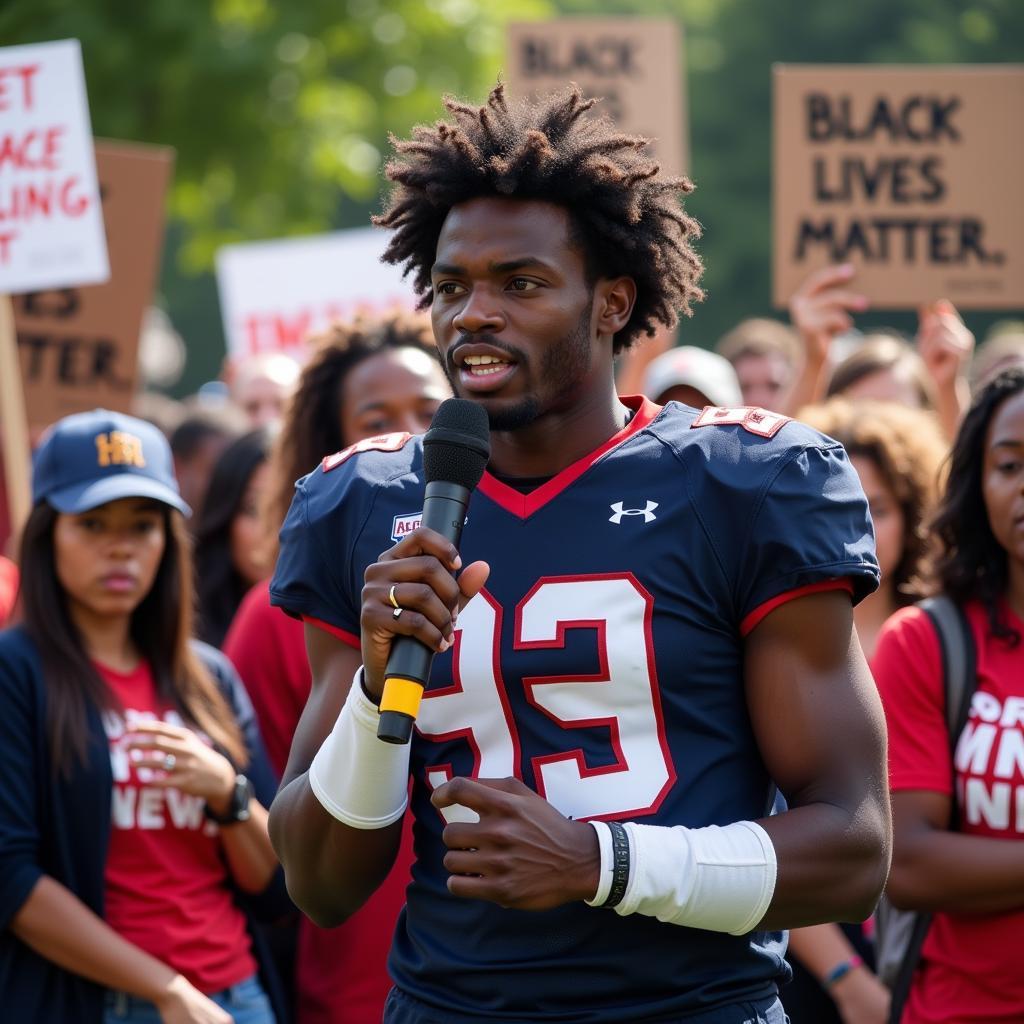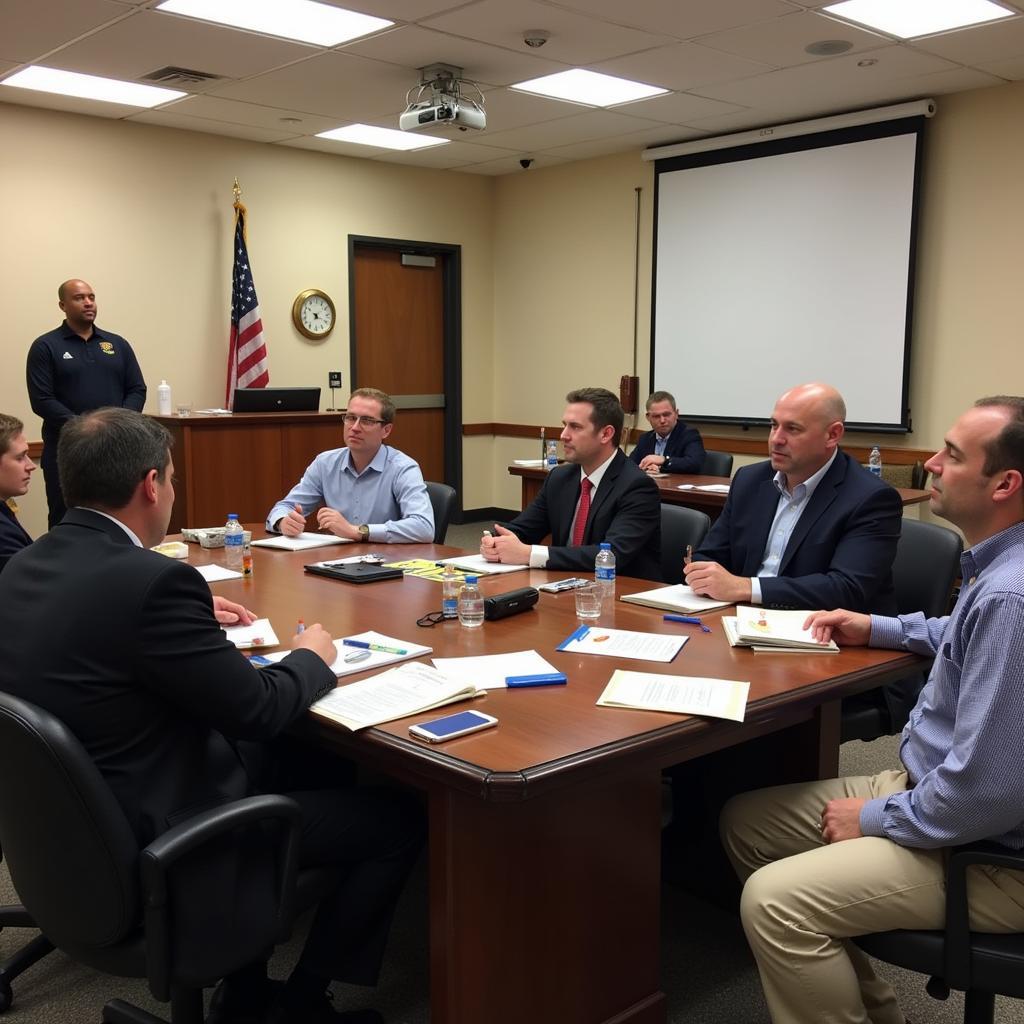College Football Players Involved In Black Lives Matter have significantly impacted the movement’s visibility and discourse. Their platform, influence, and personal experiences have brought attention to racial injustice and social inequalities, sparking conversations and driving change both within the sports world and beyond.
The Intersection of Sports and Activism: College Football Players Taking a Stand
College athletes, particularly in high-profile sports like football, hold a unique position in society. Their influence extends beyond the field, reaching fans, communities, and even policymakers. When college football players use their platforms to speak out on social issues like Black Lives Matter, they amplify the message and bring it to a broader audience. This involvement has not been without its challenges, ranging from backlash from some fans to navigating complex relationships with universities and sponsors. However, the impact of their activism has been undeniable.
Many players have shared personal stories of experiencing or witnessing racism, adding a deeply personal dimension to the movement. These stories humanize the issue and challenge preconceived notions about race and privilege. The collective action of college football players has also led to tangible changes within university athletic departments, including increased diversity and inclusion initiatives.
 College Football Players Protest for Black Lives Matter
College Football Players Protest for Black Lives Matter
Navigating the Challenges: Supporting Student Athletes and Free Speech
The decision for college football players involved in Black Lives Matter to speak out is not always easy. They face potential criticism, pressure from various stakeholders, and the risk of jeopardizing their athletic careers. Supporting these athletes requires creating an environment where they feel safe to express their views without fear of retribution. Universities, coaches, and teammates play a crucial role in fostering this supportive atmosphere. Open dialogue, education, and resources are essential to ensuring that athletes can navigate the complex landscape of social activism while maintaining their academic and athletic pursuits.
This also raises important questions about free speech and the rights of student-athletes. Balancing the desire to protect athletes from harm with their right to express themselves is a delicate balancing act. Clear policies and open communication are vital to navigating this complex terrain.
From Protest to Policy: Impacting Change Beyond the Field
The activism of college football players involved in Black Lives Matter has extended beyond symbolic gestures and social media posts. Their advocacy has contributed to policy changes at both the university and national levels. From demanding greater diversity within athletic departments to advocating for criminal justice reform, these athletes have leveraged their platform to push for meaningful change. This engagement demonstrates the potential for athletes to be agents of social change, using their influence to address systemic issues and create a more equitable society.
 College Football Player Speaking at a Black Lives Matter Rally
College Football Player Speaking at a Black Lives Matter Rally
The Future of Athlete Activism in College Football
The involvement of college football players in Black Lives Matter has set a precedent for future athlete activism. It has demonstrated the power of collective action and the potential for athletes to use their platform to address social injustices. While challenges remain, the momentum for change is undeniable. As more athletes find their voices and use their influence to advocate for a better world, the impact of athlete activism is likely to continue to grow.
 College Football Team Meeting with Community Leaders
College Football Team Meeting with Community Leaders
Conclusion
College football players involved in Black Lives Matter have made significant contributions to the movement, leveraging their platform to raise awareness and advocate for change. Their actions have sparked important conversations and driven real-world impact. As these athletes continue to use their voices, they pave the way for a future where athlete activism plays an increasingly important role in shaping society.
FAQ
- How have college football players been involved in the Black Lives Matter movement?
- What are some of the challenges faced by college athletes who speak out on social issues?
- How has athlete activism impacted policy changes related to Black Lives Matter?
- What is the future of athlete activism in college football?
- What resources are available to support student-athletes who are engaged in social activism?
- How can universities and coaches create a supportive environment for athletes to express their views?
- What are some examples of successful athlete-led initiatives related to Black Lives Matter?
Situations
- A college football player decides to kneel during the national anthem to protest racial injustice.
- A team decides to boycott a game to demand policy changes related to diversity and inclusion.
- A group of athletes organizes a campus-wide rally to raise awareness about Black Lives Matter.
Further Reading
For more information on this topic, please visit our other articles on [link to related article 1] and [link to related article 2].
Need Support? Contact us 24/7: Phone: 0869066600, Email: [email protected], or visit us at 491 An Duong Vuong Street, Binh Tan District, Ho Chi Minh City 71907, Vietnam.